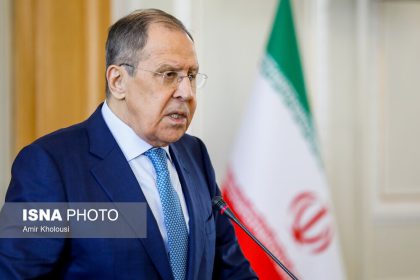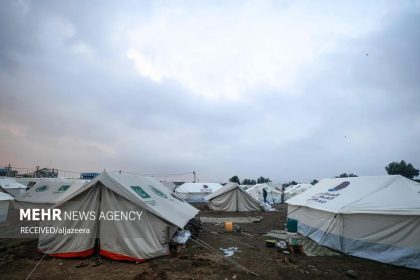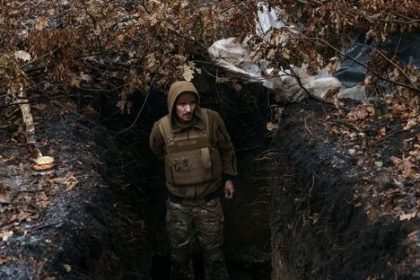The controversy over 2 billion euros; Europe in two ways to push or help Ukraine
While Trump holds Ukrainian peace talks, the European Union is looking at a € 5 billion secret weapon. However, European governments have disagreed over the seizure of Russian blocked state assets.
US President Donald Trump behaves as if he had all the winning leaves in the Ukrainian war talks, but Brussels has a € 5 billion secret weapon in his sleeve.
Palico’s website wrote in a report that European governments may come up with an extreme option after Europe has been dismissed from the February 9 talks between the United States and Russia on the end of the Ukrainian war; The confiscation of Russian government assets that have been blocked after Moscow’s massive attack on Ukraine three years ago.
For the European Union, the bulk of these assets – about € 5 billion – is kept at the EuroClier financial institution in Brussels and is profitable. In contrast, the United States has only $ 5 billion of these assets. The confiscation of these assets is a radical option that almost guarantees Europe to have a stronger place in the negotiations after Europe has been abandoned in recent US -Kremlin talks in Saudi Arabia.
But while the Ministers of Central Banks and heads of central banks come together this week in South Africa, European governments disagree on whether the liberalization of these assets will show Brussels power, or the opposite outcome. It will have.
Play with the winning leaf
Among the threat of US interaction with Ukraine, anti -Russian politicians argue that the liberation of these assets and its transfer to Kiev helps the war -torn country to advocate on the battlefield and to resist Trump’s demands for the end of the war.
“(With Russian blocked assets), we can replace US support, if the United States decides not to support Ukraine,” said Estonian Foreign Minister Margus Tassakhna.
“We have and we have to use € 5 billion in blocked Russian assets in Europe, and we have to use it,” Tassakhna told reporters in Brussels, along with his counterparts from Denmark, Sweden, Lithuania and Latvia. (Although the exact amount of these assets is unclear, it generally seems to be more accurate € 5 billion.)
The Baltic and Scandinavian countries, which are Russian neighbors, believe that this money should be given immediately to Ukraine. The position is supported by Poland, the Czech Republic and the EU’s foreign policy chief, Kaya Kalas, former Estonian Prime Minister Kaya Kalas.
“I do not agree with the legal problem … we need political will to do it,” Lithuania’s foreign minister said in an interview with Paltiko. The capitals that are skeptical need to have stronger reasons why we should not do it. “
The opposition of the great European powers
But on the opposite front, the great European powers, namely France, Germany, Italy, Spain, and Ursula von are in the European Commission Chairman. They are worried that the confiscation of these assets will frighten international investors and eliminate the biggest leverage of the EU in peace talks.
French President Emmanuel Macron said during a meeting with Trump at the White House on Monday that Western allies could use the profits from these assets during the war, but the confiscation will be illegal reserves. However, he said that blocking these assets is an important lever. Kaya Calas also admitted that the probability of confiscating these assets is very low in the near future.
“We need everyone’s support,” he said at a News conference on Monday. But so far we haven’t had such support. “
Blocked assets as lever
Opponents of the liberation of Russian assets argue that doing so is currently undermining the EU pressure leverage in peace talks with Russia.
US Secretary of State Marco Rubio, after meeting with Russian Foreign Minister Sergei Lavrov in Riyadh last week, said the EU should eventually participate in peace talks because of sanctions against Russia.
European countries acknowledge that billions of euros of Russian blocked assets give them more influence on the Kremlin. “If Russia really wants to get rid of that money, it has to offer something in return,” said an EU diplomat.
Although Estonian Foreign Minister Tsakhna supports the direct transfer of the money to Kiev, his government has also accepted that preserving these assets as leverage has its own benefits.
According to a document prepared for the EU Foreign Ministers on Monday, the Taline government said: “Continuing to block these assets acts as a financial and diplomatic leverage and guarantees that Russia is a clear and tangible motivation. “To negotiate agreement and compensate for Ukraine.”
The leaders of the EU countries have also passed a law that will block the assets until Russia agreed to pay war compensation to Ukraine. These countries look at € 5 billion as a source to cover the huge costs of Ukraine’s reconstruction; The cost that the World Bank has estimated at $ 5 billion.
Another EU diplomat said, “Many disagree with the liberation of these assets because they consider it a capital to rebuild Ukraine.”
According to Reuters, Russia has shown the idea of the idea as the budget continues to be renovated by Moscow -controlled Ukrainian areas.
Last year, a group of seven, known as the G2 of advanced industrialized countries, agreed after difficult negotiations to use the profits from these assets to guarantee a $ 2 billion loan to Ukraine. The Minister of Finance of the Group will come together on Wednesday and Thursday in Cape Town, as part of the Group Twenty Summit, to discuss future support for Ukraine.
The end of the message
(Tagstotranslate) Ukraine War
RCO NEWS
RCO

















